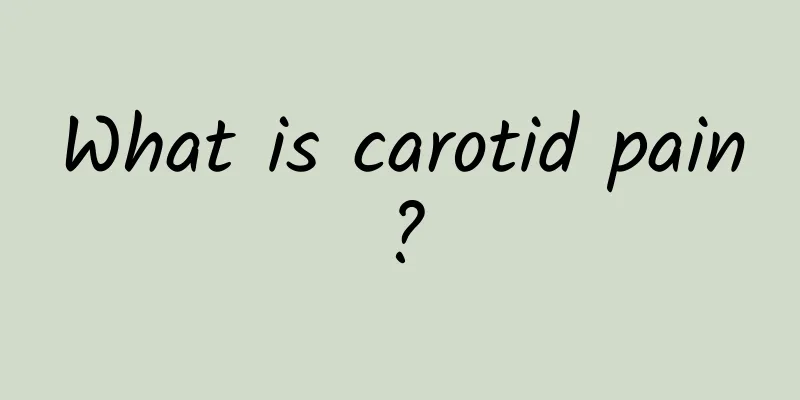Is a thyroglossal duct cyst serious?

|
Thyroglossal duct cyst refers to the situation in which the lingual duct degenerates incompletely or does not disappear during the development of the thyroid gland in the embryonic period of a child, leaving a congenital cyst in the neck. This disease can occur at any age, but it is more common in adolescents. If the disease is more serious, it often leads to difficulty in swallowing, speech dysfunction, etc. Clinical manifestations The occurrence of thyroglossal duct cyst has no significant relationship with gender. It can occur in both men and women and at any age, but it is more common in adolescents under 30 years old. The cyst can occur anywhere between the foramen cecum and the sternal notch in the middle of the anterior neck, most commonly above and below the body of the hyoid bone, and sometimes may be biased to one side. Cysts are mostly round, grow slowly, and are usually asymptomatic, and are often discovered accidentally. The cyst is soft, with clear boundaries and no adhesion to the surface skin and surrounding tissues. For cysts located below the hyoid bone, a tough cord-like object can sometimes be felt between the cyst and the body of the hyoid bone. The cyst can move up and down with swallowing and tongue extension. If the cyst is located near the foramen cecum, when it grows to a certain extent, it can raise the root of the tongue and cause swallowing and speech dysfunction. The cyst can communicate with the oral cavity through the foramen cecum and is prone to secondary infection. When the cyst is infected, pain may occur, especially when swallowing. Examination of the neck may reveal redness on the surface of the cyst with unclear boundaries. When the cyst ruptures on its own or is drained through skin incision, a thyroglossal duct fistula may form. At this time, the cyst may disappear due to drainage of the contents. Clinically, primary thyroglossal duct fistula can also be seen existing since birth. The fistula of thyroglossal duct fistula is small, and yellowish mucus or purulent mucus flows out for a long time. When the fistula is blocked, it may cause acute inflammation of the fistula. According to the range of methylene blue staining during surgery and the analysis of pathological sections during and after surgery, thyroglossal duct cysts can be divided into 5 categories: type I: subhyoid cyst or reticular fistula branches, and a single fistula above the hyoid; type II: cysts or reticular fistula branches both above and below the hyoid; type III: suprahyoid cyst or reticular fistula branches, and a single fistula below the hyoid; type IV: subrahyoid cyst or reticular fistula branches, and closed suprahyoid fistula; type V: suprahyoid cyst or reticular fistula branches and closed subrahyoid fistula. Prognosis There may be a certain recurrence rate after surgical resection of thyroglossal duct cyst. Some studies have reported that the postoperative recurrence rate of Sistrunk surgery is 3% to 5%, but there are also reports that the recurrence rate is as high as 26.9%. The recurrence rate of patients who relapse after surgery can reach 33%. Most of them are papillary carcinomas, but there are also follicular carcinomas, squamous cell carcinomas, etc. However, there is still controversy about its origin. Some people believe that it is the spread of occult thyroid cancer, while others believe that it originates from ectopic thyroid tissue in the wall of thyroglossal duct cyst. |
>>: How to eliminate key pin cyst
Recommend
Poria cocos pictures and effects
I think everyone is familiar with the term coix s...
Which Chinese medicine for lowering blood pressure is more effective?
In addition to taking drugs to lower blood pressu...
Can damaged ear nerves be restored?
Due to factors such as noise or disease, some pat...
What to do if you have bleeding at 6 weeks of pregnancy
Six weeks of pregnancy is the early stage of preg...
Causes of vaginal bleeding in girls
In life, there must be many women who have experi...
Swelling on one side of the genitals
Gynecological diseases are definitely an annoying...
What should I do if my lumbar vertebrae are herniated and compressing my nerves and my legs hurt?
Lumbar vertebra herniation is a common lumbar dis...
What are the benefits of Paris polyphylla pollen
Paris polyphylla is a particularly important Chin...
How to take Bifidobacterium?
In daily life, many people are prone to gastroint...
Symptoms of facial fungal infection
For most people, their face is very important, so...
How to prevent pressure sores?
In daily life, pressure sores are a common physic...
Nursing problems and measures for lung infection
Lung infection, also known as pneumonia, can pose...
What are the effects of chrysanthemum tablets
Xiangju tablets are an over-the-counter medicine ...
What is the best combination of osmanthus and its effects and functions
Many women have the habit of drinking herbal tea....
Blood-tonifying and kidney-tonifying soup, these three are the most effective
Blood deficiency and kidney deficiency often make...









